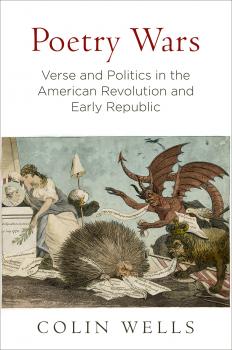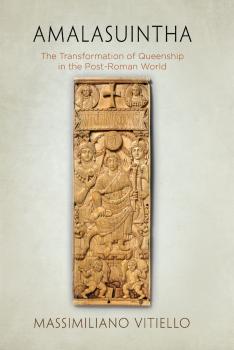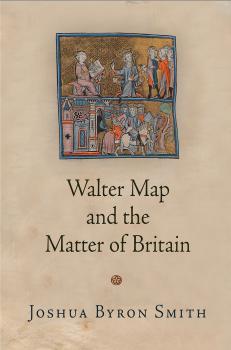ТОП просматриваемых книг сайта:
ЛИТМИР - LITMIR.BIZ - Электронная библиотека
Скачивание или чтение онлайн электронных книг.Аннотация
Race and the Making of American Political Science - Jessica Blatt
American Governance: Politics, Policy, and Public LawАннотация
Race and the Making of American Political Science shows that changing scientific ideas about racial difference were central to the academic study of politics as it emerged in the United States. From the late nineteenth century through the 1930s, scholars of politics defined and continually reoriented their field in response to the political imperatives of the racial order at home and abroad as well to as the vagaries of race science. The Gilded Age scholars who founded the first university departments and journals located sovereignty and legitimacy in a «Teutonic germ» of liberty planted in the new world by Anglo-Saxon settlers and almost extinguished in the conflict over slavery. Within a generation, «Teutonism» would come to seem like philosophical speculation, but well into the twentieth century, major political scientists understood racial difference to be a fundamental shaper of political life. They wove popular and scientific ideas about race into their accounts of political belonging, of progress and change, of proper hierarchy, and of democracy and its warrants. And they attended closely to new developments in race science, viewing them as central to their own core questions. In doing so, they constructed models of human difference and political life that still exert a powerful hold on our political imagination today, in and outside of the academy. By tracing this history, Jessica Blatt effects a bold reinterpretation of the origins of U.S. political science, one that embeds that history in larger processes of the coproduction of racial ideas, racial oppression, and political knowledge.
Аннотация
In 2007, after serving almost fifteen years on the Philadelphia City Council, Michael A. Nutter became the ninety-eighth mayor of his hometown of Philadelphia. From the time he was sworn in until he left office in 2016, there were triumphs and challenges, from the mundane to the unexpected, from snow removal, trash collection, and drinkable water, to the Phillies' World Series win, Hurricane Irene, Occupy Philadelphia, and the Papal visit. By the end of Nutter's tenure, homicides were at an almost fifty-year low, high-school graduation and college-degree attainment rates increased significantly, and Philadelphia's population had grown every year. Nutter also recruited businesses to open in Philadelphia, motivating them through tax reforms, improved services, and international trade missions. Mayor begins with Nutter's early days in politics and ultimate run for mayor, when he formed a coalition from a base of support that set the stage for a successful term. Transitioning from campaigning to governing, Nutter shares his vast store of examples to depict the skills that enable a city politician to lead effectively and illustrates how problem-solving pragmatism is essential for success. With a proven track record of making things work, Nutter asserts that mayoring promises more satisfaction and more potential achievements—for not only the mayor but also the governed—than our fractious political system would have us believe. Detailing the important tasks that mayoral administrations do, Nutter tells the compelling story of a dedicated staff working together to affect positively the lives of the people of Philadelphia every day. His anecdotes, advice, and insights will excite and interest anyone with a desire to understand municipal government.
Информация о книге
Автор произведения Michael A. Nutter
Аннотация
The seventeenth and eighteenth centuries in Britain saw the proposal of so many endeavors called «projects»—a catchphrase for the daring, sometimes dangerous practice of shaping the future—that Daniel Defoe dubbed his era a «Projecting Age.» These ideas spanned a wide variety of scientific, technological, and intellectual interventions intended for the betterment of England. But for all the fanfare surrounding them, few such schemes actually materialized, leaving scores of defunct visions, from Defoe's own attempt to farm cats for perfume, to Mary Astell's proposal to charter a college for women, to countless ventures for improving land, streamlining government, and inventing new consumer goods. Taken together, these failed plans form a compelling alternative history of a Britain that might have been. The Wreckage of Intentions offers a comprehensive and critical account of projects, exploring the historical memory surrounding these concrete yet incomplete efforts to advance British society during a period defined by revolutions in finance and agriculture, the rise of experimental science, and the establishment of constitutional monarchy. Using methods of literary analysis, David Alff shows how projects began as written proposals, circulated as print objects, spurred physical undertakings, and provoked responses in the realms of poetry, fiction, and drama. Mapping this process discloses the ways in which eighteenth-century authors applied their faculties of imagination to achieve finite goals and, in so doing, devised new ways of seeing the world through its future potential. Approaching old projects through the language, landscapes, data, and personas they left behind, Alff contends this vision was, and remains, vital to the functions of statecraft, commerce, science, religion, and literature.
Информация о книге
Автор произведения David Alff
Аннотация
Today, universities serve as the economic engines and cultural centers of many U.S. cities, but how did this come to be? In Building the Ivory Tower , LaDale Winling traces the history of universities' relationship to the American city, illuminating how they embraced their role as urban developers throughout the twentieth century and what this legacy means for contemporary higher education and urban policy. In the twentieth century, the federal government funded growth and redevelopment at American universities—through PWA construction subsidies during the Great Depression, urban renewal funds at mid-century, and loans for student housing in the 1960s. This federal aid was complemented by financial support for enrollment and research, including the GI Bill at the end of World War II and the National Defense Education Act, created to educate scientists and engineers after the launch of the Soviet satellite Sputnik . Federal support allowed universities to implement new visions for campus space and urban life. However, this growth often put these institutions in tension with surrounding communities, intensifying social and economic inequality, and advancing knowledge at the expense of neighbors. Winling uses a series of case studies from the Progressive Era to the present day and covers institutions across the country, from state schools to the Ivy League. He explores how university builders and administrators worked in concert with a variety of interests—including the business community, philanthropists, and all levels of government—to achieve their development goals. Even as concerned citizens and grassroots organizers attempted to influence this process, university builders tapped into the full range of policy and economic tools to push forward their vision. Block by block, road by road, building by building, they constructed carefully managed urban institutions whose economic and political power endures to this day.
Информация о книге
Автор произведения LaDale C. Winling
Аннотация
During America's founding period, poets and balladeers engaged in a series of literary «wars» against political leaders, journalists, and each other, all in the name of determining the political course of the new nation. Political poems and songs appeared regularly in newspapers (and as pamphlets and broadsides), commenting on political issues and controversies and satirizing leaders like Thomas Jefferson and Alexander Hamilton. Drawing on hundreds of individual poems—including many that are frequently overlooked— Poetry Wars reconstructs the world of literary-political struggle as it unfolded between the Stamp Act crisis and the War of 1812. Colin Wells argues that political verse from this period was a unique literary form that derived its cultural importance from its capacity to respond to, and contest the meaning of, other printed texts—from official documents and political speeches to newspaper articles and rival political poems. First arising during the Revolution as a strategy for subverting the authority of royal proclamations and congressional declarations, poetic warfare became a ubiquitous part of early national print culture. Poets representing the emerging Federalist and Republican parties sought to wrest control of political narratives unfolding in the press by engaging in literary battles. Tracing the parallel histories of the first party system and the rise and eventual decline of political verse, Poetry Wars shows how poetic warfare lent urgency to policy debates and contributed to a dynamic in which partisans came to regard each other as threats to the republic's survival. Breathing new life into this episode of literary-political history, Wells offers detailed interpretations of scores of individual poems, references hundreds of others, and identifies numerous terms and tactics of the period's verse warfare.
Аннотация
In this book, Massimiliano Vitiello situates the life and career of the Ostrogothic queen Amalasuintha (c. 494/5-535), daughter of Theoderic the Great, in the context of the transitional time, after the fall of Rome, during which new dynastic regimes were experimenting with various forms of political legitimation. A member of the Gothic elite raised in the Romanized palace of Ravenna, Amalasuintha married her father's chosen successor and was set to become a traditional Gothic queen—a helpmate and advisor to her husband, the Visigothic prince Eutharic—with no formal political role of her own. But her early widowhood and the subsequent death of her father threw her into a position unprecedented in the Gothic world: a regent mother who assumed control of the government. During her regency, Amalasuintha clashed with a conservative Gothic aristocracy who resisted her leadership, garnered support among her Roman and pro-Roman subjects, defended Italy from the ambitions of other kings, and negotiated the expansionistic designs of Justinian and Theodora. When her son died unexpectedly at a young age, she undertook her most dangerous political enterprise: forming an unmarried coregency with her cousin, Theodahad, whom she raised to the throne. His final betrayal would cost Amalasuintha her rule and her life. Vitiello argues that Amalasuintha's story reveals a key phase in the transformation of queenship in late antiquity and the early Middle Ages, a time in which royal women slowly began exercising political power. Assessing the ancient sources for Amalasuintha's biography, Cassiodorus, Procopius, Gregory of Tours, and Jordanes, Vitiello demonstrates the ways in which her life and public image show the influence of late Roman and Byzantine imperial models on the formation of female political power in the post-Roman world.
Аннотация
Why would the sprawling thirteenth-century French prose Lancelot-Grail Cycle have been attributed to Walter Map, a twelfth-century writer from the Anglo-Welsh borderlands known for his stinging satire, religious skepticism, ghost stories, and irrepressible wit? And why, though the attribution is spurious, is it not, in some ways, implausible? Joshua Byron Smith sets out to answer these and other questions in the first English-language monograph on Walter Map—and in so doing, he offers a new explanation for how narratives about the pre-Saxon inhabitants of Britain, including King Arthur and his knights, first circulated in England. Smith contends that it was inventive clerics like Walter, and not traveling minstrels or professional translators, who popularized these stories. Smith examines Walter's only surviving work, the De nugis curialium , to demonstrate that it is not the disheveled text that scholars have imagined but rather five separate works in various stages of completion. This in turn provides new evidence to support his larger contention, that ecclesiastical networks of textual exchange played a major role in exporting Welsh literary material into England. Medieval readers incorrectly envisioned Walter withdrawing ancient Latin documents about the Holy Grail from a monastery and compiling them in order to compose the Lancelot-Grail Cycle . In this detail they were wrong, Smith acknowledges, but a model of literary transmission that is not vernacular and popular but Latinate and ecclesiastical demands our serious consideration.










